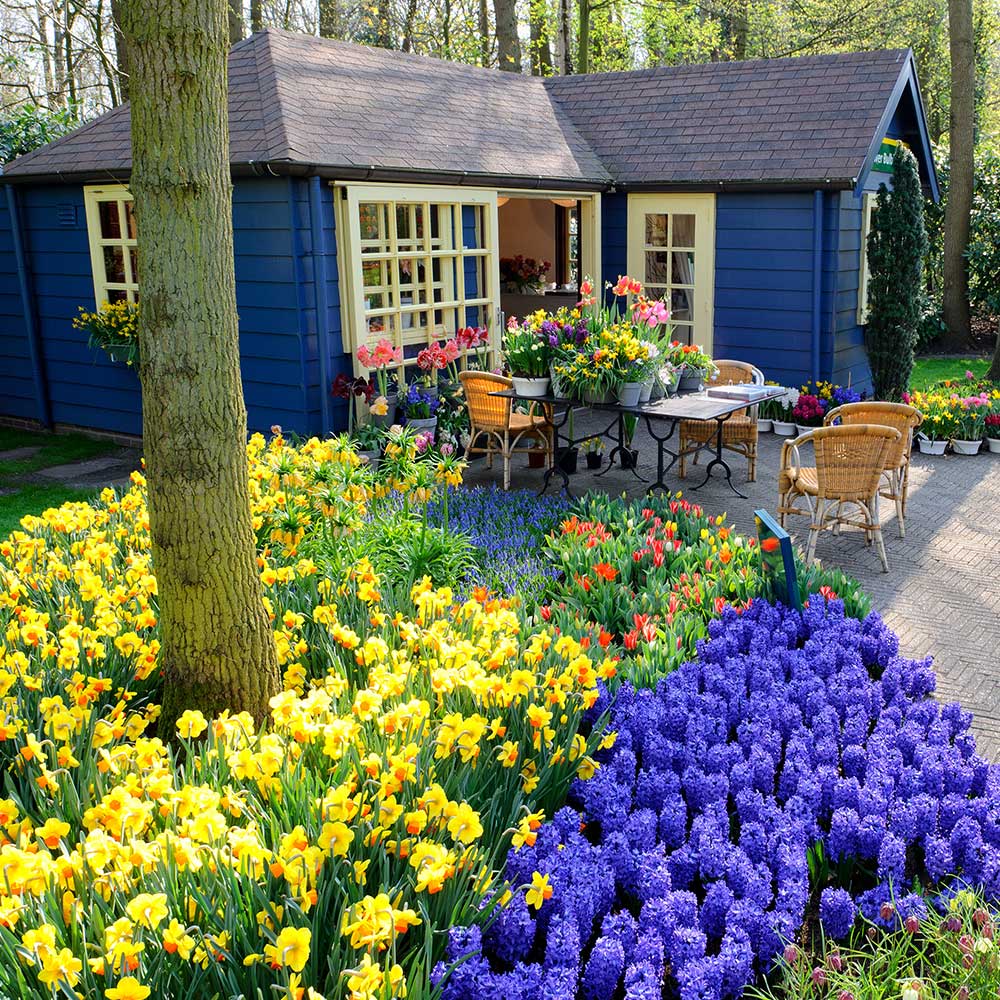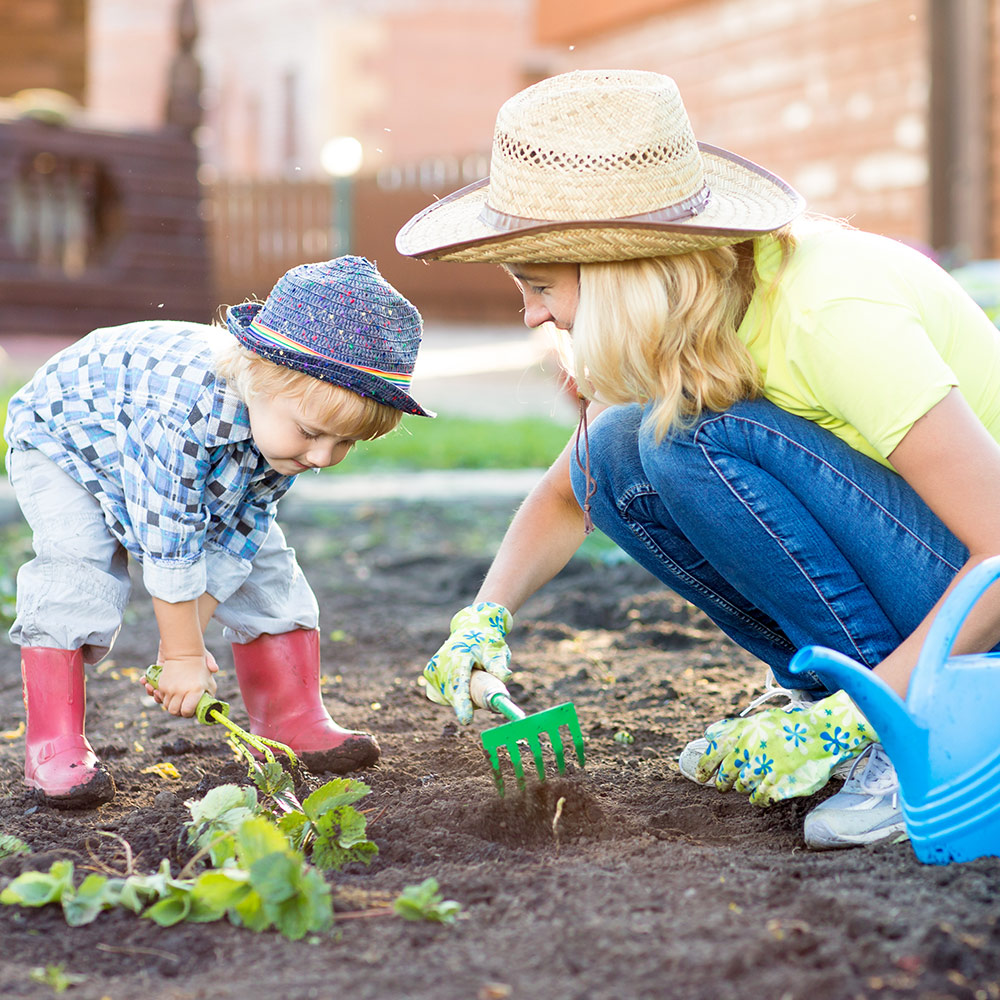
Do you have what you need to make your garden grow?


Garden Center
Shop Outdoor and Garden Supplies Near You
Shop Plants Online
The Home Depot Garden Center at Maryville
Spring Black Friday Savings
Our huge spring sale is back, so get ready to save. New patio furniture makes it easy to savor the spring air, and new tools help take care of that to-do list. Don't forget to upgrade your outdoor power equipment to make sure your lawn and garden is pristine. Get great Spring Black Friday deals from April 4th through 28th, and enjoy your outdoor oasis as your garden and yard transform with the seasons. 
Mother's Day Gardening Gifts
When you're searching for Mother's Day gardening gifts, check out the discounts on our flower pots, planters, and garden decor. Our Mother's Day Sale is your solution for the perfect present. You can even surprise her with new patio furniture. If you're on the fence about what to get, a gift card is always appreciated. This big sale runs from May 2nd to May 12th, so be sure to shop it on our mobile app or in person at your local store.
It's time to start thinking of spring. We're here to help you prepare for sprouts poking up, fragrant breezes, and warmer temperatures. Planting seeds indoors near a sunny window means you'll be ready to transplant spring annuals and young veggie plants when the frosts are through and the ground thaws. You might even want to directly plant organic seeds into the earth.
Plant Hardiness Zones Explained
The first thing to learn when planting vegetables, spring flowers, and other seeds is your planting zone. Every location in the U.S. and its territories is sorted by climate. Find your zone on the USDA growing zone map and learn when to plant seeds.
For example, you could transplant bell peppers outdoors in mid-March in Zone 10, but not until the end of May in Zone 4. You'll have good results with plants that have your zone number or less. In other words, a Zone 6 garden can support plants listed as Zones 1–6. You can plant seeds indoors roughly a month before you can plant them outside, or direct sow. Always read your seed packet for details. If you start them a little later than recommended, it's not ideal, but it should even out as time passes.
Gardening in Your Growing Zone
Kentucky, Tennessee, Virginia, and West Virginia are in Zones 6–8. Cruciferous veggies and certain herbs are ready to grow when you're ready to plant. This includes broccoli, cabbage, and kale. Greens like spinach and artichokes, early-blooming annuals like marigolds, and fragrant herbs, including basil, parsley, and oregano, also don't mind an early beginning. Even in the highest peaks of West Virginia in Zone 5b, traditional garden vegetables like peppers of all kinds, cucumbers, and tomatoes are fine with an early spring or late winter start indoors under the grow lights.
Look up the date of your last predicted frost, then count backward 6 to 8 weeks. That's the time you should sow your seeds indoors. The idea is to have strong baby plants that are ready for transplant at the same time the ground is warm enough. Do your best and enjoy the process – watching your plants grow, bloom, and put out tiny veggies that'll grow to harvest size is part of the fun.
Start Seeds Indoors
Save money and gain the satisfaction of growing your garden from seeds by starting them indoors. We've got all the seed starter supplies you'll need. For best results, you'll want warming lights or a warming mat to go with your seed tray or plant pots. If you're planting a larger garden, use seed trays — like the ones you see sprouts in at your Maryville Garden Center — to make it easy to stay organized and plant tiny soil plugs later. You can also use pots with seed starter mix and potting soil.
Measure your finger to use it as a ruler. In general, you'll plant 3–5 seeds, then press them into the soil to the depth you need with your finger. Mark where you planted the seeds with a toothpick or plant tag. That way, you'll know where your seeds should pop up, and you'll know they're not weeds. Otherwise, it'll be a surprise when the sprouts push out of the soil.
Sprouts
When your seeds have sprouted but aren't ready to go outside yet, you can still prepare them for outdoor life. These inch-tall micro-seedlings are fragile but resilient. Seedlings certainly don't get all this pampering in nature when they volunteer and grow wherever, so they can handle more than you think. However, don't go overboard, as your sprouts are still babies. You can even use an oscillating floor fan on low to mimic the wind and strengthen their stems.
Harden Your Seedlings
Harden your seedlings for best results later. On days that are warmer than 45–50 degrees, take your pots or trays of seedlings outside to slowly warm in the shade for two hours, but bring them inside at night. A cloudy day will also work well. Gradually add an extra hour or two each day, incorporating a little sun to get your plants used to it. After a week or more of this, you can leave them out overnight if the temps stay above 50 degrees. Cover your plants if they're in the ground and a late-season frost sneaks back in.
Transplant Young Plants Into Their New Homes
Place your transplants in the ground, then give them a generous drink of water. Blanket the surrounding area with mulch, marking where the plant is with a tag so you can easily find it among the grass clippings, old leaves, or straw. If your yard is regularly visited by rabbits, squirrels, deer, or chipmunks, consider putting up chicken wire or other protective measures so your plants and veggies are less likely to get eaten before they thrive.
Protect Your Garden With Mulch
Finish it off with mulch and compost. Mulch keeps your soil from drying out and controls weeds. Compost enriches the soil so your garden can grow even better. It may help foster stronger plants that bear more fruit and flowers. Mulch and compost can be DIY creations, but you can also purchase them in-store. The next time you're looking for "mulch near me," stop by the Garden Center to get the perfect amount.
Greet the Spring
Late winter into early spring is an exciting time in the world of gardening. Don't miss a minute of growing season. Prepare to fertilize your lawn, plan your garden and landscaping, and browse our garden center pages to find inspiration on which spring flowers to plant when the weather warms. Shop for the soil, fertilizer, and seeds you need in the aisles of your Maryville Garden Center, online, or on our mobile app. Let's get growing together.
Shop Outdoor and Garden Brands
Frequently Asked Questions About Gardening
What's my planting zone?
Check the USDA zone map, as planting zones have shifted over the years. Zones with higher numbers can plant earlier in the year. Increase your odds of successful gardening by choosing plants that are meant for your zone.
Is it ok to plant seeds outside in the spring?
If the soil isn't cold and frozen, consider planting your veggie, fruit, or flower seeds directly into your garden. This is called the "direct sow" method. The time to plant will be after the threat of frost is gone for the season, as sprouts and seedlings can't weather those conditions. You can also start your seeds indoors if you'd like. Consult your seed packet for how and when to sow seeds.
Do you carry organic plants and seeds?
Yes, we've got a variety of organic options, including organic veggie seeds and fruit seeds, and organic flower and herb seeds which are subject to availability. We carry the organic soil to plant it in as well as the organic fertilizer to feed it.
Do I have to harden off my seedlings before planting them outside?
Yes, if you raised plants indoors from seeds, harden them first before you transplant them. Hardening is the process of getting them used to outdoor life and the fluctuating spring weather. It slows their growth until they're strong and ready to take off during a spring warm front. Hardening also makes your plants more resilient to a sudden cold snap.
How do I plant a transplant or baby plant?
Squeeze the plastic around the plant to loosen the soil. Gently coax your transplant and the surrounding clod of dirt out into the palm of your hand, then place it into the hole you dug for it. Make sure the top of your transplant's soil is even with the garden soil, and carefully press the earth into place. Avoid leaving the plant as an island with a moat around it, and don't tamp down the ground too tightly. Your plant baby needs to breathe.
Should I use peat moss starters or coir starters?
Seed starters, full of nutrients in pellets or pots, work for new and experienced gardeners. You don't have to use these starters if you're planting in soil, but you may want to. Starting seeds in peat pots works best for delicately rooted plants like cucumbers and eggplant, as well as flowers that need acidic soil. Some people prefer coir starters instead, as they have a neutral pH. Check what type of soil your plants need to help narrow it down, and chat with a garden center associate if you need more info.
Nearby Stores
9361 Kingston Pike
Knoxville, TN 37922
12.26 mi
Mon-Sat: 6:00am - 10:00pm
Sun: 8:00am - 8:00pm
140 Green Road
Knoxville, TN 37920
13.75 mi
Mon-Sat: 6:00am - 9:00pm
Sun: 8:00am - 8:00pm
250 Abbie Dr
Lenoir City, TN 37772
15.73 mi
Mon-Sat: 6:00am - 10:00pm
Sun: 8:00am - 8:00pm
)

)

.jpeg?im=Crop,rect=(363.69230769230774,1.2307692307692308,958.7692307692308,958.7692307692308))
)
)
)
)









)
)




)


)
)














































